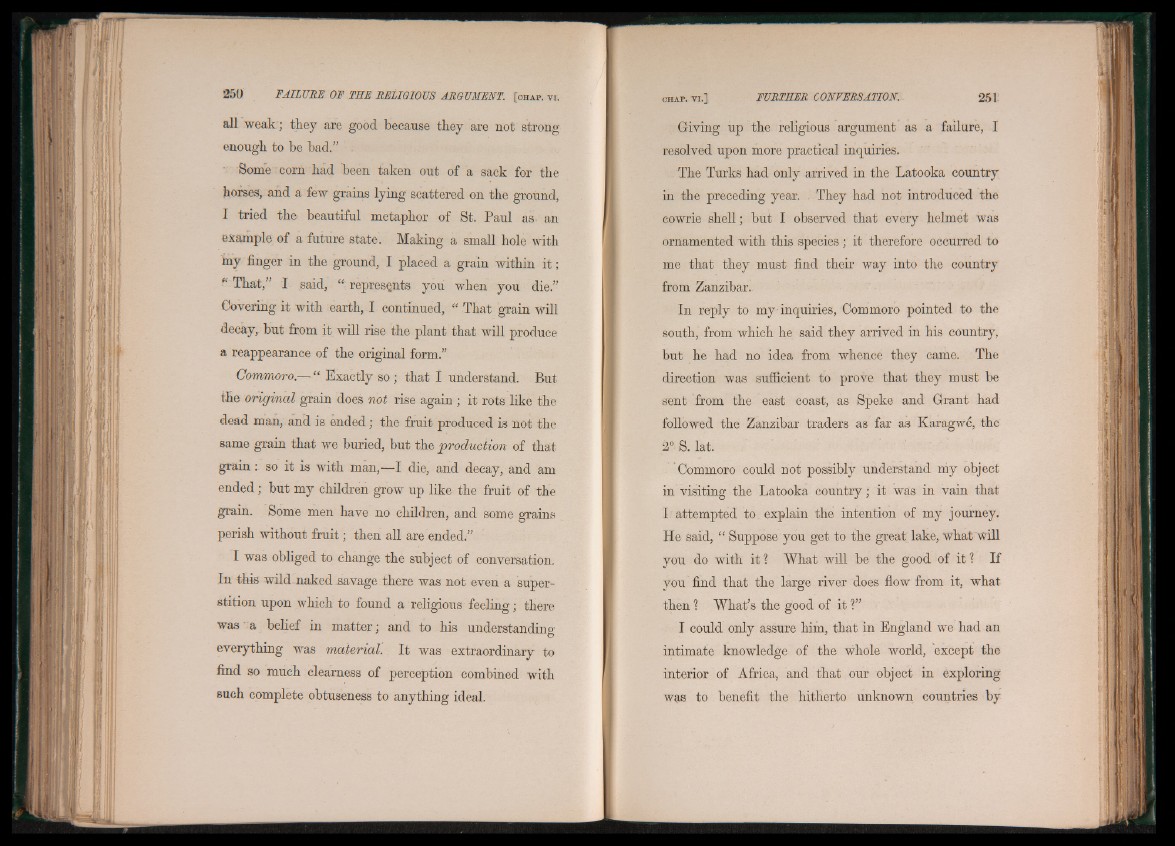
all weak ; they are good because they are not strong
enough to be bad.”
Some corn had been taken out of a sack for the
horses, and a few grains lying scattered on the ground,
I tried the beautiful metaphor of St. Paul as- an
example of a future state. Making a «ma.11 hole with
my finger in the ground, I placed a grain within it;
i? That,” I said, “ represents you when you die.”
Covering it with earth, I continued, “ That grain will
decay, but from it will rise the plant that will produce
a reappearance of the original form.”
Commoro.— “ Exactly so; that I understand. But
the original grain does not rise again ; it rots like the
dead man, and is ended ; the fruit produced is not the
same grain that we buried, but the production of that
grain : so it is with man,—I die, and decay, and am
ended; but my children grow up like the fruit of the
grain. Some men have no children, and some grains
perish without fruit ; then all are ended.”
I was obliged to change the subject of conversation.
In this wild naked savage there was not even a superstition
upon which to found a religious feeling; there
was a belief in matter ; and to his understanding'
everything was material. It was extraordinary to
find so much clearness of perception combined with
such complete obtuseness to anything ideal.
Giving up the religious argument as a failure, I
resolved upon more practical inquiries.
The Turks had only arrived in the Latooka country
in the preceding year. . They had not introduced the
cowrie shell; but I observed that every helmet was
ornamented with this species; it therefore occurred to
me that they must find their way into the country
from Zanzibar.
In reply to my inquiries, Commoro pointed to the
south, from which he said they arrived in his country,
but he had no idea from whence they came. The
direction was sufficient to prove that they must be
sent from the east coast, as Speke and Grant had
followed the Zanzibar traders as far as Karagwe, the
2° S. lat.
Commoro could not possibly understand my object
in visiting the Latooka country; it was in vain that
I attempted to explain the intention of my journey.
He said, “ Suppose you get to the great lake, what will
you do with it? What will be the good of it? If
you find that the large river does flow from it, what
then ? What’s the good of it ?”
I could only assure him, that in England we had an
intimate knowledge of the whole world, except the
interior of Africa, and that our object in exploring
was to benefit the hitherto unknown countries by